I normally wake up at 5 am and have been doing so for years now. In fact, if I didn’t wake up early you probably wouldn’t be reading this right now as I simply wouldn’t have the time to write for this blog. But it wasn’t always this way… I had to make a conscious effort to become an early riser.
Are you tired of hitting the snooze button multiple times every morning? Do you want to be an early riser, having a head start on the day and maximizing your productivity? Waking up early can sound like a dream, but it is achievable and comes with an array of benefits. In this comprehensive guide, I will cover the benefits of waking up early, demystify the science of sleep, and provide proven strategies to help you start your journey to rising early.
Waking up early isn’t about punishing yourself, it’s about empowering yourself. By following this guide, you’ll be well on your way to harnessing the power of the early morning and realizing your full potential.
Ready to explore the world of early risers? Let’s dive in.
- The Benefits of Waking Up Early
- The Science of Sleep
- Lifestyle and Sleep Habits
- How to Adjust Your Sleep Schedule
- Strategies to Wake Up Early
- The Role of a Healthy Evening Routine
- Tools and Apps to Assist With Waking Up Early
- Common Mistakes to Avoid on Your Early Rising Journey
- Wrapping Up: How to Wake Up Early
- Frequently Asked Questions (FAQs)
The Benefits of Waking Up Early
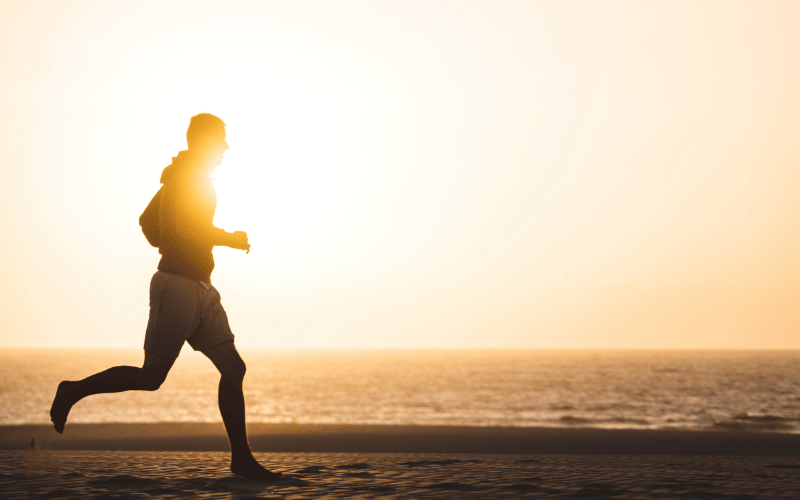
Rising early comes with a host of benefits that can significantly improve your overall well-being and productivity. Here are some of the key advantages that early risers often experience:
1. Increased Productivity and Focus:
Mornings tend to be quieter and less distracting, offering a prime time for focused work. Waking up early allows you to take advantage of these peaceful hours and tackle important tasks with increased concentration and efficiency.
2. Time for Healthy Habits:
With extra time in the morning, you can incorporate health-promoting activities into your routine, such as exercise, meditation, or a nutritious breakfast. These practices not only contribute to physical health but can also boost your mood and energy levels for the day ahead.
3. Better Time Management:
Waking up early gives you a head start on your day, allowing you to plan and organize your tasks effectively. This can lead to reduced stress, improved time management, and a greater sense of control over your schedule.
4. Improved Quality of Sleep:
Maintaining a consistent sleep schedule, which includes waking up early, helps regulate your body’s internal clock, or circadian rhythm. This can improve the quality of your sleep, making you feel more rested and refreshed upon waking.
5. Increased Satisfaction and Well-Being:
Many early risers report experiencing a sense of satisfaction and tranquility from having extra time to themselves in the morning. This peaceful start can set a positive tone for the rest of the day, contributing to increased happiness and well-being.
The Science of Sleep
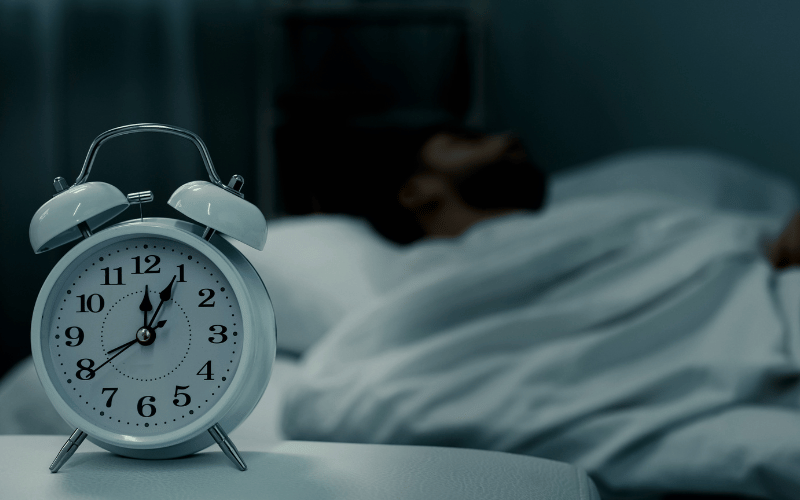
Our sleep patterns aren’t merely about personal preference; they’re closely linked to a biological system known as the circadian rhythm. This internal body clock, influenced by light and dark cycles, regulates many physiological processes including the sleep-wake cycle, body temperature, hormone release, and metabolism. Let’s dive deeper to understand its connection to waking up early.
The circadian rhythm operates on a 24-hour cycle and plays a key role in determining when we feel awake and when we feel sleepy. During the day, exposure to light sends a signal to our brain to feel more alert. As evening approaches, the brain releases the hormone melatonin in response to darkness, promoting feelings of sleepiness.
When we try to wake up earlier than our body is used to, we disrupt this natural rhythm. This is why you may experience grogginess or find it hard to stay awake in the early morning hours. But, just as the body can adjust to jet lag, it can also adjust to a new wake-up time. The trick lies in gradually shifting your sleep schedule and exposing yourself to light early in the morning to help reset your internal clock.
Understanding the science of sleep is the first step in effectively adjusting your sleep schedule. By respecting your circadian rhythm, and working in sync with it, you can make waking up early a seamless part of your routine.
Lifestyle and Sleep Habits
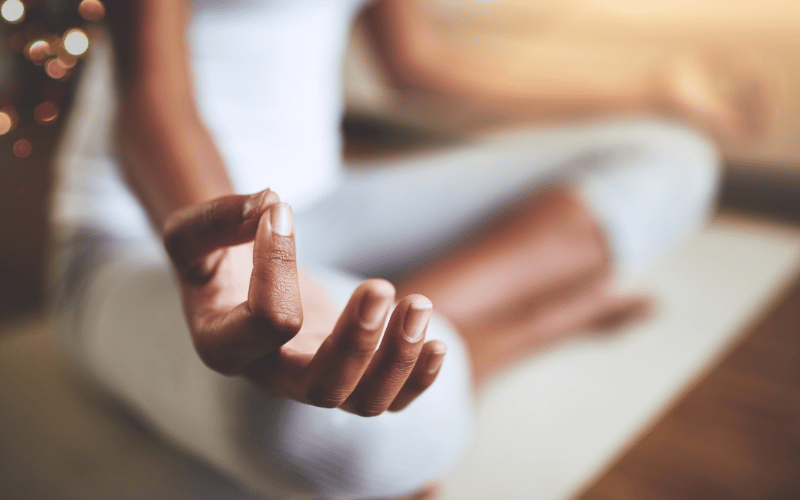
Your lifestyle plays a pivotal role in determining the quality of your sleep and your ability to wake up early. Let’s explore how diet, exercise, and daily routines can impact your sleep patterns.
Diet and Sleep:
What you consume during the day can greatly influence your sleep patterns. Certain foods and drinks can hinder your sleep quality and make waking up early more challenging.
Caffeine, found in coffee, tea, chocolate, and some sodas, is a stimulant that can interfere with your sleep if consumed later in the day. Aim to avoid caffeinated beverages at least six hours before bedtime.
Alcohol may initially make you feel sleepy, but it can disrupt your sleep cycle and lead to fragmented sleep.
On the other hand, foods rich in tryptophan (an amino acid that aids in the production of sleep-inducing hormones), magnesium, and melatonin can promote better sleep. Such foods include milk, turkey, almonds, and cherries.
Exercise and Sleep:
Regular physical activity can help regulate your sleep-wake cycle and make it easier to fall asleep and wake up. Exercise can boost the effects of natural sleep hormones like melatonin, especially when performed in the morning or afternoon. However, intense exercise close to bedtime can have the opposite effect due to its stimulating nature.
Daily Routines and Sleep:
The consistency of your daily routines greatly impacts your sleep. Having a regular sleep schedule helps regulate your body’s internal clock and could help you fall asleep and wake up more easily. The same applies to meal times. Regular meal times can positively influence your circadian rhythm.
Your nighttime routine plays a particularly crucial role. Exposure to bright screens close to bedtime can inhibit melatonin production, making it harder to fall asleep. Creating a relaxing pre-sleep routine, such as reading a book, taking a warm bath, or practicing meditation, can signal your body that it’s time to sleep.
In the next section, we will provide a step-by-step guide to adjusting your bedtime, harnessing the power of these lifestyle factors to wake up early.
How to Adjust Your Sleep Schedule
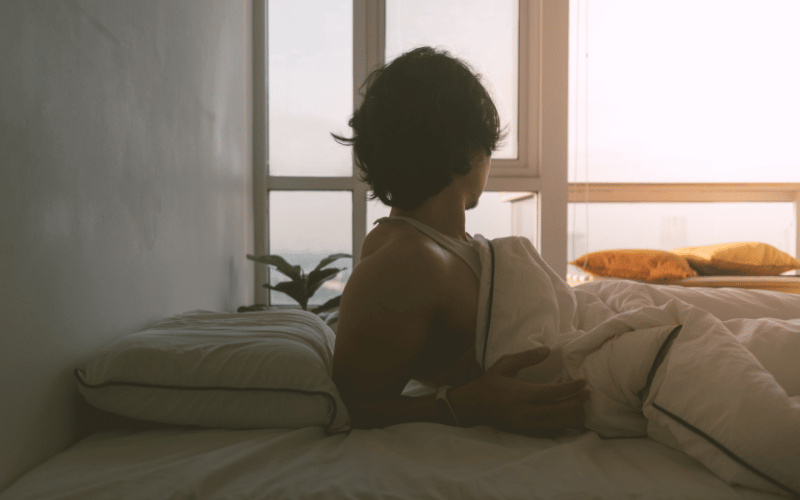
Transforming from a night owl to an early bird doesn’t happen overnight. It requires patience, consistency, and gradual adjustments to your sleep schedule. Here are some proven strategies to ease this transition:
Step 1: Determine Your Ideal Wake-up Time
Before you start adjusting your sleep schedule, identify your desired wake-up time. Perhaps you aim to wake up early enough for a morning workout, to start work before everyone else, or simply to enjoy a quiet breakfast. Having a clear goal in mind will provide motivation as you make these changes.
Step 2: Gradual Adjustment
Rather than making a drastic change, it’s recommended to adjust your sleep schedule gradually. Try going to bed and waking up 15 minutes earlier than usual. Once this new timing feels comfortable, push it back another 15 minutes. Continue this process until you reach your desired wake-up time.
Step 3: Consistent Sleep Schedule
Keep your wake-up and bedtimes consistent every day, even on weekends. This consistency helps reinforce your body’s sleep-wake cycle and can make it easier to fall asleep and wake up at your determined times.
Step 4: Create an Evening Routine
Establish a calming evening routine to signal to your body that it’s time to sleep. This could include activities like reading a book, doing gentle yoga, listening to soft music, or meditating. Try to turn off electronic devices at least an hour before bed to reduce exposure to stimulating blue light.
Step 5: Optimize Your Sleep Environment
Ensure your bedroom is conducive to sleep. Keep it cool, quiet, and dark. Consider using earplugs, a sleep mask, or a white noise machine if needed. Invest in a comfortable mattress and pillows.
Step 6: Seek Morning Light
Exposure to natural light in the morning helps reset your circadian rhythm, making it easier to wake up. Try to get outside within the first hour of waking, or consider using a light therapy lamp if natural light isn’t available.
Remember, patience and consistency are key in this process. It may take a few weeks to adjust your sleep schedule, but the benefits of waking up early can make it worthwhile. In the next section, we’ll delve into more concrete strategies to help you become an early riser.
Strategies to Wake Up Early

Now that you’ve understood the science of sleep and how to adjust your sleep schedule, let’s delve into practical strategies to help you wake up early consistently.
1. Utilize Alarm Clocks Effectively:
Place your alarm clock across the room. This forces you to get out of bed to turn it off, making it less tempting to hit snooze and more likely that you’ll stay awake. Consider using an alarm clock that simulates sunrise or uses a soothing sound that progressively gets louder to wake you up gently.
2. Stay Active in the Morning:
Once you’re out of bed, do something active. This could be a quick workout, a morning walk, or some simple stretches. Physical activity helps wake your body up and sets a positive tone for the day.
3. Start with an Enjoyable Activity:
Make your early morning more enticing by starting with something you enjoy. This could be a favorite book, a warm cup of tea, or even listening to a motivational podcast. Creating positive associations with waking up early can make the process easier.
4. Hydrate:
Drinking a glass of water first thing in the morning helps kickstart your metabolism and wake up your body. Some people also find the splash of cold water on their face or a cold shower to be invigorating.
5. Eat a Nutritious Breakfast:
Having a healthy and balanced breakfast gives your body the energy it needs for the day and helps keep your circadian rhythm on track.
6. Limit Daytime Naps:
While short power naps can be beneficial, long or late-day naps can disrupt your sleep schedule. If you need a daytime nap, aim to keep it short (20-30 minutes) and early in the day.
7. Practice Mindfulness or Meditation:
Mindfulness exercises or short morning meditations can help set a calm, focused tone for your day.
Waking up early is a positive habit that can be cultivated with consistency and patience. Over time, these strategies can make early rising a seamless part of your lifestyle. In the next section, we will delve into creating a healthy evening routine to optimize your sleep.
The Role of a Healthy Evening Routine
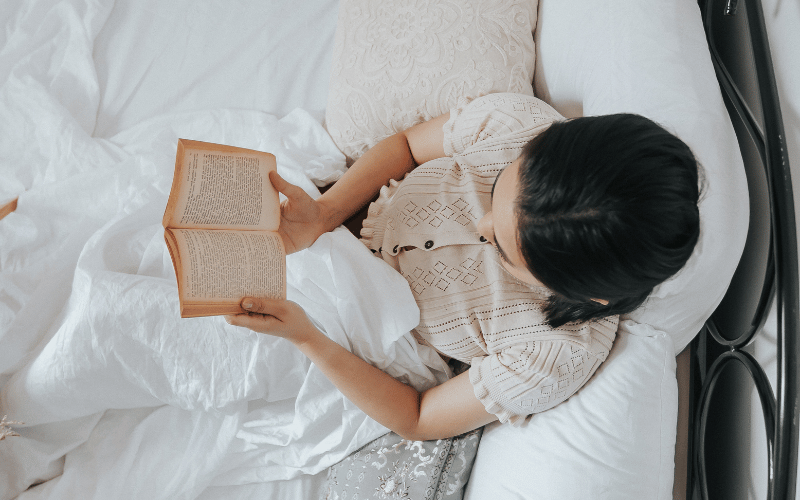
While much of our focus has been on morning habits and strategies to help you wake up early, it’s essential to remember that a successful morning starts the night before. A healthy evening routine can significantly impact your ability to fall asleep, the quality of your sleep, and consequently, your capacity to wake up early. Let’s look at how to create an evening routine that sets the stage for a productive morning.
1. Establish a Wind-Down Period:
Designate the hour before bed as a time to relax and prepare for sleep. This could involve reading, listening to calming music, or practicing a gentle yoga sequence. The goal is to signal to your body that it’s time to slow down and rest.
2. Limit Exposure to Screens:
The blue light emitted by screens can interfere with the production of melatonin, a hormone that regulates your sleep-wake cycle. Try to turn off all screens at least an hour before bed to support your body’s natural sleep signals.
3. Prepare for the Next Day:
Take some time each evening to prepare for the following day. This could involve packing your lunch, laying out your clothes, or writing a to-do list for the next day. Not only can this make your morning less hectic, but it can also help put your mind at ease before bed.
4. Create a Sleep-Inducing Environment:
Your sleep environment plays a significant role in the quality of your sleep. Make your bedroom a sleep-friendly zone with a comfortable mattress and pillows, blackout curtains, and a cool temperature. Consider using white noise machines or earplugs to block out disruptive noises.
5. Follow a Consistent Bedtime:
Just as waking up at the same time each day can help regulate your circadian rhythm, so can going to bed at the same time. Aim to stick to your bedtime as closely as possible, even on weekends, to support your body’s natural sleep-wake cycle.
Creating a healthy evening routine is an investment in your morning routine. By setting the stage for a good night’s sleep, you’re making it easier to wake up early and start your day on a positive note. Remember, small changes can make a big difference in your sleep health and overall well-being.
Tools and Apps to Assist With Waking Up Early
In today’s digital age, there are numerous tools and apps designed to help you enhance your sleep and wake up early more easily. These technological aids can be incredibly beneficial in regulating your sleep schedule and ensuring a smooth transition into becoming an early riser.
1. Sleep Trackers:
Sleep tracking devices or apps can provide insights into your sleep patterns, helping you understand your sleep quality and when you naturally fall asleep and wake up. Devices like Fitbit, Oura Ring, or apps like Sleep Cycle can be helpful tools.
2. Alarm Clocks:
We’ve already mentioned sunrise alarm clocks, which can provide a more natural and gentle way to wake up. In addition, there are alarm apps designed to help you wake up more gradually, such as Sleep Cycle Alarm Clock, which tracks your sleep patterns and wakes you up during light sleep.
3. Blue Light Blocking Apps:
Exposure to blue light from screens can interfere with your sleep by suppressing melatonin production. Apps like f.lux or features like Night Shift on iOS devices adjust the color temperature of your screen to reduce blue light emission in the evening.
4. Guided Sleep Meditation Apps:
Apps like Calm, Headspace, or Insight Timer offer guided sleep meditations or bedtime stories to help you relax and drift off to sleep more easily.
5. Noise-Masking Apps:
If noise is a problem for you, apps like Noisli or White Noise can generate soothing background sounds to mask disruptive noises and create a calming environment for sleep.
Remember, while these tools and apps can aid in your journey to becoming an early riser, they should be used as supplements to the healthy sleep habits and strategies discussed earlier. Also, while these tools can be helpful, they aren’t replacements for professional medical advice. If you’re struggling with chronic sleep issues, it’s essential to consult a healthcare professional.
Common Mistakes to Avoid on Your Early Rising Journey
Even with the best intentions, there can be hurdles on your journey to becoming an early riser. Understanding these common mistakes can help you navigate potential pitfalls and stay on track.
1. Trying to Change Habits Too Quickly:
Transitioning to an earlier wake-up time is a process. Attempting to shift your wake-up time by several hours overnight is likely to leave you feeling exhausted and make the change unsustainable. A more effective approach is to gradually adjust your wake-up time by 15-30 minutes every few days until you reach your desired schedule.
2. Inconsistent Sleep Schedules:
Going to bed and waking up at different times every day can throw off your body’s internal clock, making it harder to wake up early. Strive for consistency, even on weekends, to reinforce your sleep-wake cycle and make early rising a natural part of your routine.
3. Over-reliance on Snooze Button:
Hitting the snooze button might feel satisfying in the moment, but it can lead to fragmented, poor-quality sleep and make it more difficult to wake up. Instead, try to get up as soon as your alarm goes off.
4. Neglecting Sleep Quality:
Focus not only on when you sleep but also on how well you sleep. Ensure your sleep environment is dark, quiet, and cool, and consider using aids like earplugs, eye masks, or white noise machines if necessary. Regular exercise, a balanced diet, and limiting caffeine and alcohol can also improve sleep quality.
5. Ignoring Underlying Sleep Issues:
If you consistently struggle with sleep despite following healthy sleep habits, there may be an underlying sleep disorder like sleep apnea, insomnia, or restless legs syndrome. Don’t hesitate to seek professional help if you’re experiencing persistent sleep problems.
6. Lack of a Morning Routine:
Having a purpose or routine in the morning can make waking up early more rewarding and motivating. Whether it’s exercise, meditation, or simply enjoying a peaceful breakfast, find a morning activity that you look forward to.
Remember, becoming an early riser is a journey, and it’s okay to experience setbacks along the way. What’s most important is to learn from these mistakes, make adjustments as needed, and remain committed to your goal of waking up early.
In our final section, we’ll summarize everything we’ve covered and provide some final thoughts on how to make the most of your early mornings.
Wrapping Up: How to Wake Up Early

Becoming an early riser can transform your life by offering extra productive hours, tranquility, and the satisfaction of having accomplished important tasks before most people have started their day. While it requires adjustments and a firm commitment, the benefits are worth the effort.
To recap:
- Recognize the benefits of waking up early.
- Understand the science of sleep and how your lifestyle impacts your sleep habits.
- Make gradual adjustments to your sleep schedule.
- Maintain a consistent sleep schedule.
- Utilize effective strategies to make waking up early easier and more enjoyable.
- Create a healthy evening routine to set the stage for waking up earlier.
- Leverage technology to assist your early-rising journey.
- Avoid common mistakes with waking up early.
Remember, becoming an early bird is a personal journey. It’s important to listen to your body, make changes gradually, and be patient with yourself. There might be days when you struggle, but with consistency and determination, waking up early can become a seamless part of your lifestyle.
Once you’ve mastered the art of waking up early, make sure to use your morning hours wisely. Whether you use this time for exercise, meditation, reading, planning your day, or simply savoring a peaceful moment with a hot cup of coffee, the goal is to create a meaningful routine that sets a positive tone for the rest of your day.
Finally, keep in mind that getting enough sleep is not a luxury – it’s a necessity for your health and well-being. Always prioritize getting the recommended minimum 7 hours of sleep per night, and if you have persistent difficulties with sleep, seek help from a healthcare professional.






Over the past few weeks I’ve pushed my waking time back to 4 a.m. I live with and care for (on a full-time basis) an elderly stroke survivor. Without going into a long story, it’s hard for me to work during the day because she feels neglected, which can lead to depression, which leads to little old lady fits [think black spiral of a day leading to the level of hell Dante left out.]
Anyway, the first thing I do when I get up is hop on the exercise bike and do 20 miles. By the time I’m done with that, about 72 minutes, I’m wide awake and ready to hit my freelance “to do” list and it’s still the crack of dawn. While I’m on the bike I use my iPod Touch to read news and blogs, so the time is very much “me” oriented.
I’ve never been an early riser, but this new routine has solved so many problems in my life that I’m dedicated to keeping it up. Only rarely do I have issues, and generally a deliberate thought about the consequences of not getting my backside out from under the covers takes care of that. It seems to me it’s all about what you’re trying to accomplish and staying in bed, at least at this point in my life, does me more harm than good.
Excellent! I agree with what you said. More power to you for getting up so early and giving us positive ideas. It is exactly what you said—it’s all about what are you trying to accomplish. Excellent reply and very helpful.
Great thoughts Peter! I attended a military academy for my college so I had to quickly learn to get up early everyday. For me the key was doing some push ups and sit ups followed immediately by a shower. This may not be for everyone, but for me I’ve found that some exercise and a shower not only wakes me up, but the feeling of being clean seems to help start my day off much better.
Its a great idea
Hello Peter
I read your posts for some time and I find it great. You say so much with simple words and not big amount of text and that is what i like about your posts. Reason why i did not leave comment up to now is because my english is bad :) , but this post about sleeping and wakeing habit is effecting me right now. I am stil a student and i have finished exams and took little break. I really had a habit of waking at 7 and it was great. Now when I should start again with studing after a week of break it is really hard i just do not wake early, I turn of my alarm and keep on sleeping more (even there is no need for that because I go to bed on time).
When I wake early I feel I do to so much things dureing day and on the end of my day I can say to miself well done. And I think that it is really true as u say that when u get up early first you should have time for yourself, and that will make us get up on time, but also make us feel happy. I like to smile when I get up and look out of my window( I have nice view) and that is where my day truly star. Waking earlier may not be for everyone as you say, but I think that is sentence that people say just to make excuse from themselves. Waking up early can really be a life changing habit. Now that I wrote this I think it will be easier for me to get back to my habit. :)
Peter,
Your sleep methods are good. Most people don’t pay enough attention on how to improve their sleep, then wonder why they are so tired. I suggest you look at the Dreamhelmet. Its triple sensory blocking system has great advantages over simple sleep masks – and they now come with a free alarm watch which fits in a secret pocket in the mask. It will wake you up and save you a trip across the room. dreamhelmet.com
I really have a problem to get up at a given time. The result is that I have to rush and also get late to school. Of course, I feel really bad about it. Instead of having peaceful morning, I go through a lot of stress and it definitely affects my whole day.
So I’m gonna improve that. I want to make a commitment, thats why I’m writing here :-)
Hopefully I’ll make it and write an article with some helpful tips on my own blog.
Thanks for motivation, Peter.
Yeah, it sure is a tough one, I find it hard to respect myself when I can’t make myself get up at the time I set the night before, getting up 30 minutes later than I intended ruins my mood for the rest of the day and I’m less productive as a result.
We humans are such strange creatures, we need routine, we get bored with routine, we need a change, maybe its all about balance, so we need balance with variety, omg how?
Gav
I’ve done the “put the alarm on the other side of the room” trick for a while. If it worked at the beginning, I’ve forgotten. I’d love to know if it actually works for some people.
i love that girls piercing!!! really hot. where’d you find the photo?
My tips: lose the alarm clock. take an afternoon nap (under 20 minutes). sleep in multiples of 90 minutes. avoid all prescription and otc drugs. exercise hard.
You know you’re getting old when…
You find yourself nodding and interested in a post like this that breaks down sleep into precise objects, schedules and habits…
…and then you think back on a decade ago when you used to stumble into your room at 3am, crash on your bed fully clothed because you’d partied too much and then passed out for exactly 4 hours of sleep before you had to get up to go to work.
Peter, since coming back from vacation, I really needed to read this article. It has been TOUGH for me to get up earlier, and Ive had so much work to do. “Winding down” has been key for me…and I read at least 20 pages of fiction before I go to bed!
Todd
ps, thx for the link love!
I liked in particular the suggestions on how to sleep better at night by shutting down the computer earlier and reading a book. That’s what I’ve been doing lately and it works great.
Another suggestion would be to light some candles and watch them flicker until you get sleepy. It has a hypnotic effect on me. Also reminds me of the time when I used to go camping with my family and we watched a campfire until it died down. That was always fun.
The other thing I liked about this article is finding a morning routine that you like. I have one myself. I love making coffee, reading through my emails, checking the stats of my blog and then responding back to the emails. It’s become a favorite routine for years – I love it! I often feel lost without having access to the internet upon waking up. I guess I’m an internet addict but I enjoy it!
Thanks for a great article of practical tips.
The funny thing is, I used to be able to get out of bed. I wake up pretty easily and early, too! Unfortunately, ever since I re-arranged my bedroom and even moved my bed, I have started to fail at getting up in the morning. Somehow, I feel much more relaxed and am tempted to sleep again. I guess the change was positive for my sleeping habits but I would need to work on getting out of bed again!
Turning off the computer and going to sleep right away didn’t work for me either :)
I have been struggling to get up this past weeks because the quality of my sleep is not really good… I think it’s related to my mind being active (full speed), thinking about what to do tomorrow…
Fortunately today I could wake up earlier, it’s 7 am here in Argentina, and given that I usually wake up at 10 or 10 o’clock this is a huge improvement!
Thanks for the tips Peter, always welcomed!
For me, avoiding caffeine and winding down seem to be the two most important things I need to do to get a good night’s sleep and be ready to get up early and face the next day. I ride an exercise bike shortly before bedtime to release the tension in my body from a day of work. It works wonders for me. I don’t know what I’d do without the exercise!
I agree that having a good purpose for getting out of bed helps a lot. Since I’ve started blogging, when my alarm goes off, my mind immediately starts thinking about my writing for the day which wakes me up and gets me going!
Peter.
Re Dreamhelmet:
“Who was that masked man?!” She needs one too – you could trade nicknames.
I completely know what you mean, especially about the visualization part. I just tried that yesterday and normally I hit the snooze button 10+ times. Yesterday night I visualized and intended myself getting up at 7am feeling refreshed and ready to start the day. I set my alarm for 6:30 and pressed snooze 3 times. Lo and behold I finally woke up at 7am. I know this might not sound too impressive for some, but it’s a drastic improvement for me. Thanks for the tips Peter. =)
ps. Dugg
I also wake around 5, but I walk out the door heading to work after a quick shower. I have thought about trying to get up earlier and earlier, but cannot seem to mustard up the courage. I get plenty of sleep, but have been thinking about extending my day. Any ideas on how to extend your day in the evening without loosing the needed rest and sleep? A lot of your ideas are correct though and I practice a few of them and will try the rest soon.
http://www.JuiceofChampions.com
I just stumbled on your blog, and read through 10 or so of your old posts–I immediately clicked over to Word and wrote my teenage self a nice long letter, and I’m pondering my mission statement, too.
I usually find sites about self-improvement to be sappy, esoteric and cliched, but your blog is written in a way that’s accessible to the kind of every day slob who can actually benefit from this stuff.
Just wanted to say thanks for making me think, and keep up the good work!
Well, I prefer to have a job I can sleep in to a reasonably hour no matter what.
Nothing comes before sleep as far as I’m concerned. Nothing else is so healthy AND so deliciously enjoyable at the same time (except one other thing I can think of.)
Probably that’s even why cats have nine lives–because they sleep so much. Sleeping keeps me young.
xoxo
iza
Hello Peter,
I visit your blog very often, your blog is great. Everyday while I travel by train from college back home, I check your blog on my mobile phone. Keep on going like this, It’s great.
Thanks,
Arjen
I made it a rule many years ago to only get up when I felt like it, and for a long time I got up at 11 or 12 most days. Now I’m finding I naturally want to get up reasonably early, and it never feels like a strain (if it is, I stay in bed!)
Excellent sleep ideas, and great comments, too. I’ve been a night owl forever. My doctor thinks I may simply be genetically predisposed to work at night and sleep during the day. Whenever I try to get back to a normal schedule so I can be with everyone else on the planet while they’re awake, my system gets really messed up. So… I could be a night time police dispatcher, a night nurse, a newspaper writer on swing shift….
Anyway, thanks for your wealth of great ideas!
Great blog, I have subcribed my Google… I enjoyed your refreshing and informative posts. Check out my travel blog sometime, I think you would enjoy it.
Pura Vida
J
I loved this post. I love getting up early, but sadly don’t get the sleep for it. Thanks for the ideas
Excellent post on sleep. Quality of sleep is by far more important than quantity of sleep. This is such an insightful post… I’ve had sleep problems my entire life and found the answers I needed from Dr. Barry Krakow. He’s written a book called “Sound Sleep, Sound Mind,” and it’s excellent. I highly recommend it.
Thanks again for the great post.
Thanks for the article. I come back to your site on occasion to read an article here and there, as I’ve been in a bit of a slump at times lately. I’ve been finding it difficult to wake up early for the past few years, mostly because I have a hard time forcing myself to go to bed at a decent hour. Rarely am I in bed before 1am–that’s my main problem.
I made a new year’s commitment to get to bed earlier and it worked for a couple of weeks. It felt good too, but then I fell back out of it. Your site inspires me to refocus on that goal.
Great article! Thanks so much, Peter.
For about 10 months, I have been very diligent about the time I work up (usually 5 or 6), and while I will never be a morning person, I felt that I got a ton accomplished and was proud of my achievements. Lately, however, it’s been harder and harder getting up.
Your article gave me some great tips (& I got up early today!)
Monica Hamburgs last blog post..‘Twas a Good Year, I Remember it Fondly
The only trick I know is visualizing to yourself before sleep, what time your clock is going to be the moment you open your eyes in the morning. I normally do not use an alarm clock because I wake up at the same time everyday — without fail. My cat helps too, precisely 5 minutes after I’ve opened my eyes. My problem is, I really don’t have enough discipline to stand up and not go back to snooze land. The weird thing is, I sometimes just abruptly wake up even while immersed in dreams, just because my sleep time is up.
This is a good tip, and I’m really interested what other good things I can do to change/improve myself.
“The price of discipline is always less than the pain of regret”
Thank you, thank you, thank you! This is so very true and something I’ve been dealing with lately. I needed to hear (or shall I say read) that!
Peter,
Great list and strategies. I have incorporated the alarm clock in the next room technique for a while now. I am struggling to get out of bed at 5am and head straight to the gym. This is a new one for me. I will be a little forgiving and realize it may take me some time to get to that.
Thanks.
Marc
very good article, you inspired me to write an article about the same topic :)
Oh my goodness – you are a godsend! I’m incredibly productive, emotionally energetic, and have flexible hours and minimal responsibilities now, work from home and feel happy most of the time – and I could sleep til 11 every day if I let myself. It seems like my best sleeping hours are in the 7-10 range (though I force myself up much, much earlier).
And we have a habit in our family of watching John Stewart and Stephen Colbert – so we don’t go to sleep early enough – and I’ve always loved staying up late and working (writing) into the wee hours…
I’m going to try this. I often think that if I get up early – even 7 – I’ll instinctively do better (perhaps even 6). And then , like my husband, get a nap in in the afternoon if need be until I can get a new routine going…Thank you! Sarah
This is a really great post.
I have to try this and to try to organize my hole day or to creat a hole new day.
I like your page a lot, one of the best pages in the web.
Hi Peter .. great ideas .. and Ilike the idea of writing out and planning for tomorrow a.m., as well as feeling better for having done it – achieving those things that need to be done .. over and above the norm.
I used to hit my head (gently!) at the hour I wanted to wake up .. and this seems to work .. as well as the alarm clock ..
Thanks I’ll get my head over my mattress .. while it’s light in the mornings
Hilary Melton-Butcher
Positive Letters
For us in the working class, we have no choice but to wake up even when we don’t want to. When my shift changed to start at 6am, I had no choice but to wake up as early as 4:30am to get myself ready and insure no tardiness.
I think getting used to a routine takes the pain out of this exercise. After 3 months, I usually wake up naturally before the alarm clock goes off. And I found that I naturally feel sleepy now at around 9 am. In my previous normal office hours shift, I hit the sack at 12 midnight with or without caffeine.
This article couldn’t have come at a more perfect time for me! I have been struggling to change my habit of going to sleep late and waking up late also. I am a total night person, and much more productive at night, which is why it’s been so hard to break this habit. But I also know that when I get up early (and my early could never be 5 am!, that I just couldn’t do), I get so much more accomplished, and it is a great feeling…
Thank you for sharing these tips! I will try to incorporate some for sure!
I like your ideas. But what do you do if your job schedule changes weekly or even daily? Is it possible to overcome the inconsistencies?
Although it is great to wake up early
but
i think it is gentic am i right??
Dear,
I am from India, having job in MNC, basically doing (Gas and Oil) pipeline construction projects and I am manager – project cordination and planning. my usual professional life starts from 7:30 Am which have no rule to end on which time it is followed by discussing, managing, monitoring, planning, presentation prepration, invoice preration, liasioning, site visit, or some time site supervision of various deciplines like mechanical, electrical, civil, instrumentation. We dont have a regular rutine type of job. Even some days of week i have to go out of station.
Kindly advise how i keep my life regular and deciplined.
Regards
Dushyant Sharma
Good ideas. I kind of find it hard to wake up at around 7 in the morning since I usually sleep waaaay past midnight and I’m a sort of a busy student. I’d love to try finding a morning routine though. :)
I am a nocturnal kind and normal morning routine is almost a dream now.
Thanks for the posts.
It is very helping.
Hello
Well written post and good tips. I just would like to emphasize one point. It is very important that you get up right after you hear the alarm clock. Lounging around in bed will make you even more sleepy. I know, it is not an easy thing to do, but it is worth trying.
Best Regards
Laura
Hi Peter! I can relate on your post. I am early bird person. I usually wake early no matter what time I’m going to sleep at night. But what I usually avoid during night time is I only drink just enough water for me not to wake in the middle of the night just to pee. I want my sleeping straight till morning. If I wake in the middle of the night I will get a hard time going back to sleep and the result is when i wake up in the morning feeling like don’t wanna go for work and just sleep the whole day.
One of the suggestion can be to Put on some candles and watch them flicker until you get sleepy. All of us think that late hours of night are useful as most of the time of the day is utilized in office or routine jobs. But we can still make full use of morning hours if we sleep early. The only point is that how you are going to convince yourself for changing the lifestyle.
Peter, I’m new to your site, but after reading just two posts, I’m a fan and maybe your most recent “like” on Facebook. Keep up the good work.
I used to wake up as soon as my eye opened back in high school (5:30am). My motivation was a computer game I would leave a shop running overnight and wake-up excitedly to see how much it made. 30 mins on the computer than it was 6 am and time to get ready for school.
First year uni was the same story. This time I would wake-up to talk to my bf who went to Australia for a few months.
Atm I wake up early to learn about real estate investment options.
I find if I have some sort of hobby/interest I’ll jump out of bed and occupy myself with that. Also, big things happen on the following morning actually give me a hard time getting to sleep because sometimes I get anxious (first day of school/work/Christmas).
I love the idea of putting the alarm clock on the other side of the room :-) My problem is that I am a night owl – love to potter and get things done late at night when it is peaceful :-)
I tried visualizing my wake up and it worked! Next I’m going to make a list of things I will do when I get up as you suggested! Thanks for the tips!
Nice article, some very useful tips here.. thanks for sharing!
I habitually use my computer until late at night, usually watching some streaming TV episodes on it before I go to bed, which I know is a big no-no. I’m going to try winding down with a good book from now on to help improve my sleeping habits.
With that being said, there are times when you’ve got a project you simply have to finish, or you forgot about an email you need to send before you go to bed and you need to turn on the computer. There’s this program called “f.lux” (www.justgetflux.com) that controls the “temperature” of your computer screen so that it emits warmer lighting once the sun goes down, theoretically enabling you to get better sleep by stopping the harsh glare from your computer screen from interrupting your circadian rhythm. It’s been working pretty well for me actually, and it’s definitely worth looking into.
Hello Peter…..
I love this post…..really great.
Peter, I know this article has been up for a while, but I’m sitting here reading a handful of your posts for the first time. I’m in the “change my daily routine” stage of my life. I own and operate a small web consulting business and my day is washed away before I even know it as we take on more work, means longer days, less time for ME. I think the main take away from this article, for me, is that it is essential to creep from your 7am to 5am wake up times like you inform us. I tried the jump of a whole 2 hours, even though I didn’t get to bed 2 hours earlier and it was devastating. This was last week. Monday, I woke up at 5am and felt awesome all day, then 4pm hit and I was done. Slept like crap Monday night, didn’t want to get out of bed Tuesday, felt like crap all Tuesday, slept ok that night and so on. It ruined my first part of the week. So, now I’m going to approach it the way you did. Chunking away 15 minutes at a time, while also being mindful of the other tips you note as those do have a direct connection to making it all work well.
Another question, how did you do this with your wife sleeping next to you? Did she get up at the same time also? Do you wake her up? Disrupt her sleep? I’m curious, as I’d like to respect my wife’s sleep as well, so any tips you have here or maybe even a new article broaching this subject would be nice to learn about how you handle this :) Thanks for sharing your insight and for letting me share my approach and questions. Look forward to your response. – Patrick
I think discipline may be my issue, as it stands I wake up at 8.30am Monday – Thursday and 7.30 on a friday due to staring work early, I then lie in bed for about 15 minutes and then force myself to get up so that I’m not late for work. I will always be able to get up for things that are absolutely essential, work, flights, etc. Unfortunately if my morning brain doesn’t deem something as essential then i can’t get myself out of bed. For a couple of weeks now I’ve been wanting to go from a morning run, I’ve set my alarm early but then I can’t get up and have to re-set my alarm for 8.30. Its driving me mad, I get 9-10 hours sleep every night so its not like I’m not getting enough sleep. I eat healthily and drink loads of water, why is waking up so hard?
I’ve been struggling in waking up early these past few days. After reading this, I was struck with that caffeine-intake the night before. I just can’t resist in taking coffee every night. I don’t know but I must try less coffee during the night. Thanks for this Peter!
I get up at 6:20 and leave the house at 7:00 to start work at 8. I only get up that early because I have to. There’s absolutely no way I would want to get up any earlier than that. 6:20 is a struggle.
I go to bed at 10 and read until I can’t keep my eyes open any longer. My husband switches the light off (briefly waking me up) at 10:50.
I need about 8 hours. When I sleep less than 8 hours, I feel tired in the day time. I agree with peter, when I maintain the discipline, I can wake up from the sleep timely. Even its a weekend. My wife has a problem, she cannot sleep timely and also cannot waking up if she takes a couple of coffee. But it’s not changed my sleeping time. I just control my mind and stop thinking and try to sleep…
Apples can be surprisingly good to wake anyone up. So if you want to jumpstart your body without caffeine apples would be a good solution to your problem. Also, the best way for Mind to overcome Mattress is to have good ones =)
I need at least 6 hours of sleep…nothing worse than not wanting to get up though!
I cut out all liquid after 8pm as well… saves unwanted trips tot he bathroom.
Thanks for this. I just started looking for a new mattress, and yours is one of the few sane opinions i’ve come across. There’s a lot i can compromise with, but i need my beauty sleep haha.
Morning meditation is the best way i feel to start a day